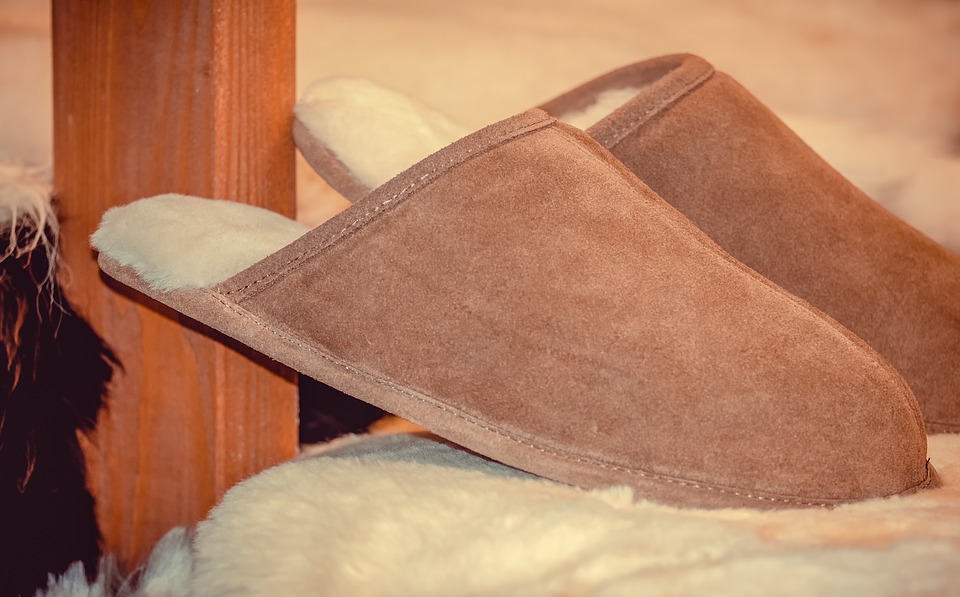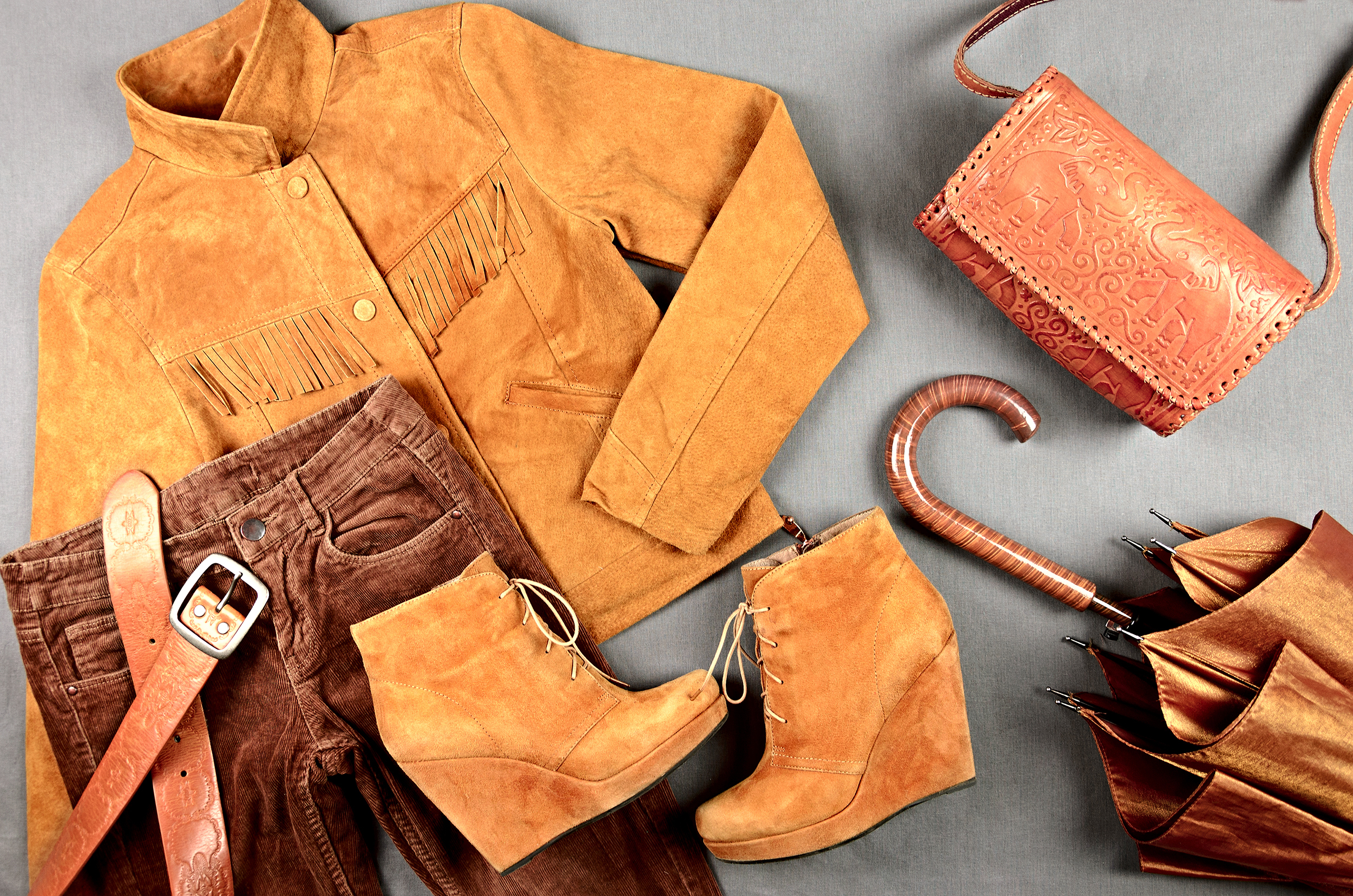What is Suede and Diffferent types of Suede Leather – The Jacket Maker
We’ve all heard of suede just as much as we’ve seen it, far more times than we may be able to count. Awesome suede leather jackets anyone? Yet as much as we agree to it’s awesomely luxurious look and feel, not to mention the many colours that they’re available in, we don’t really know much about it. In this blog post, we cover the following few yet important aspects of suede that will give us a fresh perspective with greater clarity into one of the most widely known types of leather in history.
So what is Suede anyway?

For those who don’t already know, suede in short, is the soft and fuzzy underside of an animal hide or skin. By turning leather upside-down so that the fuzzy side is face up, suede is what is achieved as the exterior.
The Origins of Suede

Going as far back as the Paleolithic era, animal hides have been used to make clothing and household items pretty commonly. It was only during the Industrial Revolution did leather undergo a big change which was brought on by the introduction of several new kinds of tanning chemicals that have proved to be essential to the creation of leather.
Suede in particular, only became the most popular as it could be during the 20th century. The status symbol that it has become has in part to do with the fashion industry highlighting it’s delicate but luxurious quality, look and feel which is why many people are forever in search of the best suede leather jackets possible. Not only that, suede enjoys another quality that is it’s versatility that many find alluring.
Fun Fact on Suede Material:
Though the word ‘suede’ originates from France, the phrase ‘gants de Suede’ means gloves of Sweden. This is a reference to a particular type of soft gloves which were imported from Sweden at the time, thus the term. However, over time; this eventually referred to any type of leather based material with a napped finish.
How is Suede Leather made?
Many suede manufacturers will simply turn over the leather hide to achieve that soft and fuzzy surface that will be used as the exterior of the product, while still maintaining the sturdy interior of leather. However, being a type of split leather, a commonly used approach to making suede leather involves the cutting of the innermost layer of the skin or hide that is mainly taken from sheep but also lamb, calves, goats and deer, to achieve that soft and fuzzy quality. Interestingly, thicker hides are also used and do give similar results in terms of softness but tend to become shaggier in nature as opposed to the napped feel that is preferred.
Levels of Quality Suede

Even though it’s true that suede is a high-quality material, it’s quality however isn’t measured or defined the same way as other types of leathers. Interestingly, the level of quality of suede is determined by the age of the animal’s skin or hide from which it is made. On one hand, sheepskin would be an ideal source for suede which is why it’s so widely popular. On the other hand, cowhide too can be used to make suede, yet it isn’t very commonly desired by many.
Another aspect that also determines the level of quality in suede is if the leather is split or not. If full grain leather is intact, it would be durable and tough yet would not make a good suede due to it not being pliable. However, if the leather is split, it contributes to achieving a soft and supple surface that is much desired in suede.
Types of Suede Leather
Similar to the wide range of leathers, suede leather too has a range of types that are based on the skin or hide from which it’s made.
Sheepskin Suede Leather
This type of suede leather for instance is mostly made from lambskin simply due to it’s lighter and softer qualities as opposed to its older counterparts. Sheepskin too can be used to make suede, though with noticeably different finished looks and feels.
Cowhide Suede Leather
Exactly the same as sheepskin and lambskin suede, cowhide suede leather too; reflects the same features. Calves have the tendency of having softer hides as opposed to fully grown cows. While cowhides offer great durability in leather, it is calves that offer the nap and softness that is desired from suede leather. Again, much like our previous point, cowhide can be used to make suede but with a noticeable difference in appearance and touch.
Pigskin Suede Leather
This type of suede is made by dyeing and sueding the skins of pigs. Technically a heavy skin that is also stiff and having a short nap and pores that resemble the skin of humans. As a suede however, it is tough and durable as well as hardwearing. Pigskin suede leather is typically used in making shoes, bags, wallets and work gloves although it is not restricted to these mentioned products.

Advantages and Disadvantages of Suede Leather
As with all materials and fabrics, suede leather too has its share of advantages and disadvantages. Below are the most noteworthy.
Advantages
-
Suede leather has a uniquely brushed face
-
It is long lasting
-
It has a soft and luxurious touch
-
The thicker suede variety can be durable
Disadvantages
-
Suede is not overly resilient
-
It absorbs water easily
-
It can become dirty quickly
-
It is Expensive
F.A.Qs
Is Suede Real Leather?
Yes, suede is real leather as it is mostly made of lambskin. Although; it is possible to make suede from goats, calves, deer and pigs as well.
Is Suede better than Leather?
While it is debatable which is better of the two, simply because although suede is softer, more casual but less durable, both; leather and suede share many common factors. Even though these may fluctuate a bit, it is a personal preference which of the two is better, based on requirements.
Can Suede be Waterproof?
Given the fact, that suede is somewhat fragile and easily prone to spillage and staining, waterproofing would be a good idea. Although this process too, ought to be handled with care. As any type of waterproofing that involves wax would be a bad idea. Having said that, spray-type protectors would be a better solution for waterproofing suede.
Is Full-grain Leather Suede?
Yes, suede can be made of full-grain leather. These are usually used in shoes, upholstery, and handbags.
Why is Suede so Expensive?
Mainly due to its softness and suppleness, suede is expensive, as well as a bit more prone to damage if not well-maintained.
What color is Suede?
Suede originally has a deep, shaded teddy-bear brown color. Some also have a taupe color that depends on the type of animal skin that is used.
What is Faux Suede?
Faux suede is an animal-friendly material that is made of polyester microfiber that is woven into a thin, soft yet very tough plastic fabric.
In Conclusion
To conclude this topic on suede leather, we now know what suede leather really is. From a bit of history to it becoming, one of the world’s most popular pieces of outerwear…the suede leather jacket. How it is made as well as the types of suede leather. Not only that, we’ve also had a chance to list some noteworthy advantages and disadvantages of this world-renowned, timeless type of leather.






